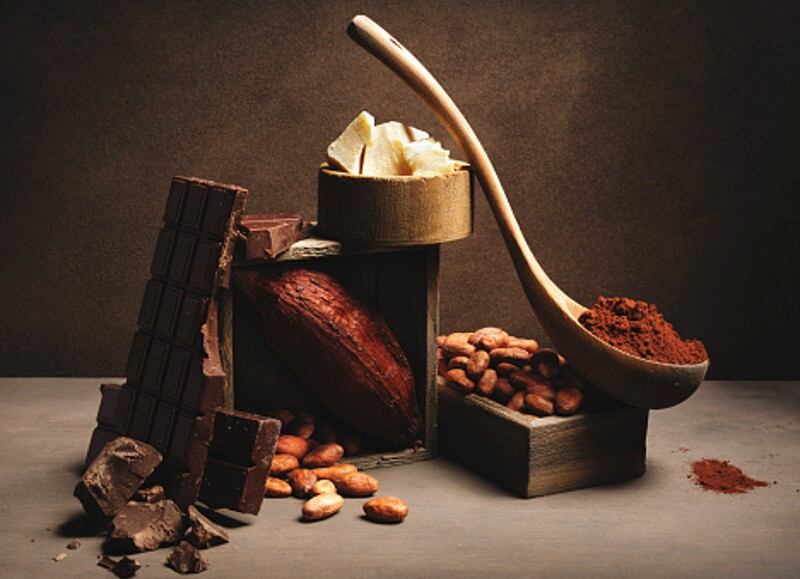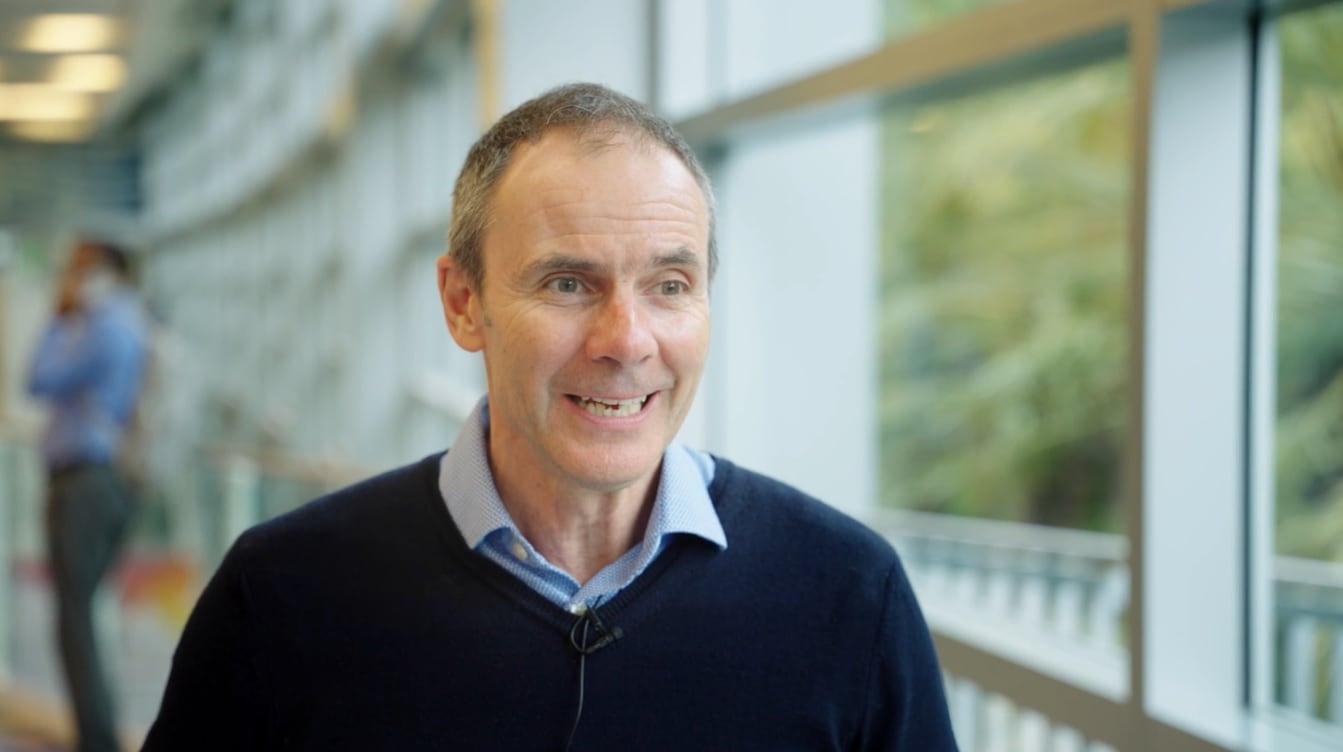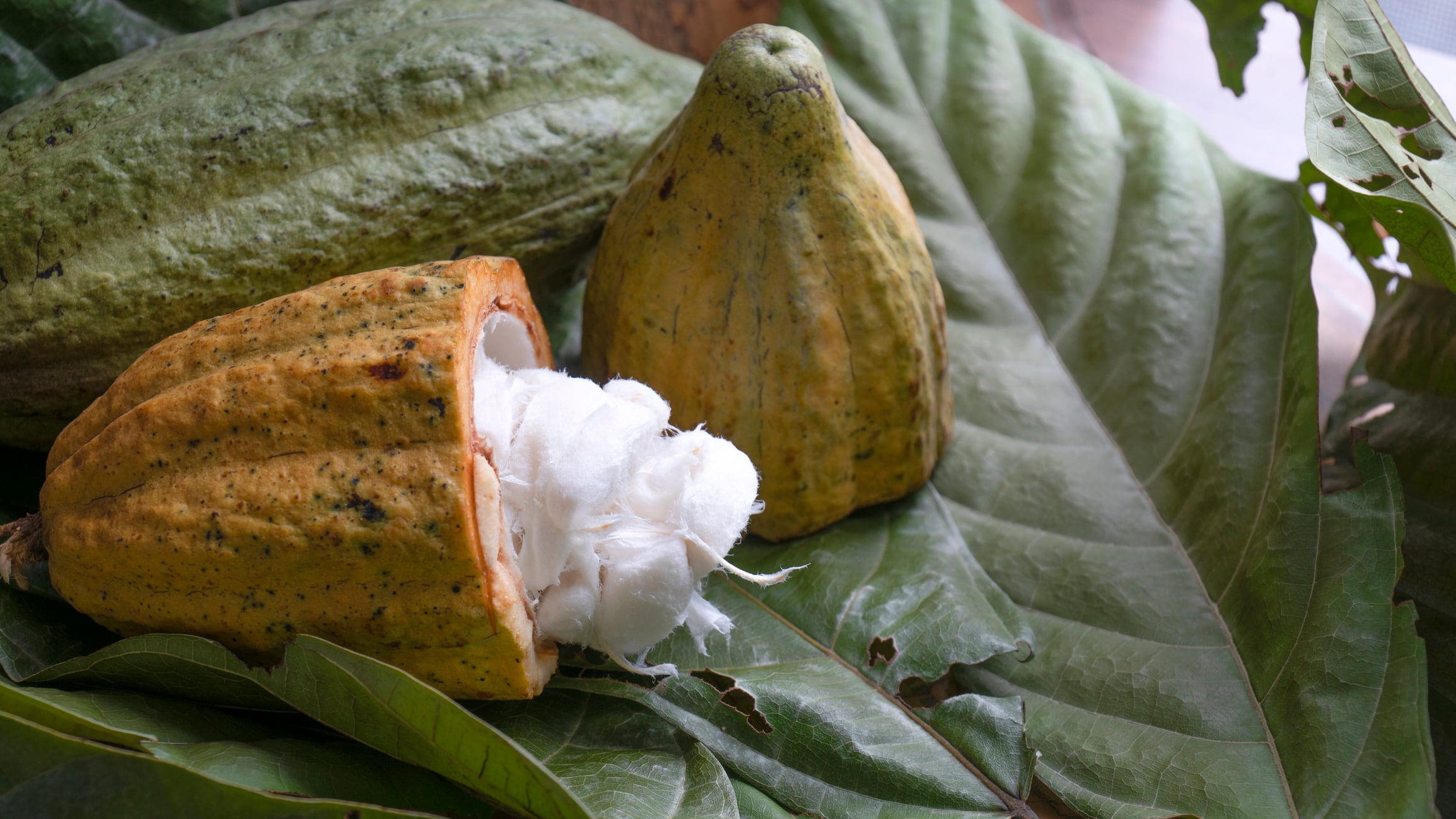Mondelēz-backed cocoa-tech company Celleste Bio unveiled today in Brussels what it says is a first-of-its-kind cell-cultured, chocolate-grade cocoa butter, which a retired Mars executive characterized as an ‘insurance policy’ against supply chain shortages that have rocked the cocoa industry in recent years.
A drop in cocoa bean production in West Africa due to weather and disease in 2024 contributed to record high prices of more than $12,000 a tonne at the end of 2025 – sending the price of cocoa butter up, too. And while prices for both have since dropped on the back of softer demand, JP Morgan Global Research expects prices will remain “structurally higher for longer” at a medium-term price forecast of $6,000 per tonne.
And there is no guarantee they will eventually drop further or stabilize – which is why Celleste Bio CEO Michal Berresi Golomb says the company’s “breakthrough” ability to produce chocolate-grade real cocoa butter via cell culture is a “validation for the entire cocoa industry.”
She explained the company’s bio-identical chocolate-grade cocoa butter made using plant cell culture technology showcased at EIT Food’s Next Bite Summit today “is a solution to supplement supply chain shortages caused by volatility and unpredictability of traditional farming.”
Celleste Bio’s cocoa butter ‘is not an alternative’
Made via cellular agriculture from cacao strains cultivated into a cell culture that is then grown in a bioreactor, Celleste Bio’s chocolate-grade cocoa butter “is not an alternative – it is real cocoa butter, with a fatty acid profile that is critical for optimal chocolate performance,” including snap, melting point, texture and taste, a spokeswoman explained.
While the ingredient replicates conventionally produced chocolate grade cocoa butter, it does not replace traditional farming, said Howard Yano Shapiro, retired chief agriculture officer at Mars, Inc.
Rather, Shapiro said in a statement, “it is an ‘insurance policy’ against imminent supply chain disruptions and destruction caused by pests, disease, land and water overuse – as well as those that will arise from climate and agriculture instability.”
Shapiro underscored the importance of technology to get ahead of a “long-term crisis” by noting that “cocoa butter is the single most important, expensive and resource intensive ingredient in chocolate.”
A roadmap forward
Celleste Bio is a frontrunner in the cultivated cocoa space with both a powder and now a butter “strictly focused on chocolate,” but it still needs to check regulatory and production requirements before brands can source the ingredient and bring innovative products using it to shelf, a spokeswoman acknowledged.
She explained the company is building a pilot facility that will produce 1,000L, which should be up and running by the end of the year. It is “simultaneously working to scale to commercialization,” she added, but it will need to raise funds to ramp up production to that point.
It also needs funds to accelerate the R&D necessary for regulatory approval, she said, adding the company currently is going through the EU regulatory process as well as determining the ingredient is Generally Recognized As Safe (GRAS).
The company expects to have regulatory approval, scale production and commercialization in 2027, the spokeswoman added.
While raising funds in the current economic environment is challenging, Celleste Bio has notable support from Mondelēz International as a strategic and design partner, which will help move the company forward with production and regulatory requirements.
Other financial supporters include Supply Change Capital, Trendlines, Barrel Ventures and others. To date, Celleste Bio has raised $5.6 million.
The competitive landscape
Techbio startup Smey also is cultivating cocoa butter using its “digital Neobank of Yeasts,” or NOY, which combines precision fermentation, AI a digital databank of yeast fatty acid profiles.
At the Future Food-Tech Summit in Chicago last July, the startup showcased a cultivated cocoa butter with 35% stearic acid that it says functions the same as traditional cocoa butter in food.
At the time, Smey said it was building its dossier to show the cocoa butter is GRAS, and it estimated a greenlight from FDA in 2026.
It also is exploring other fats and oils.



